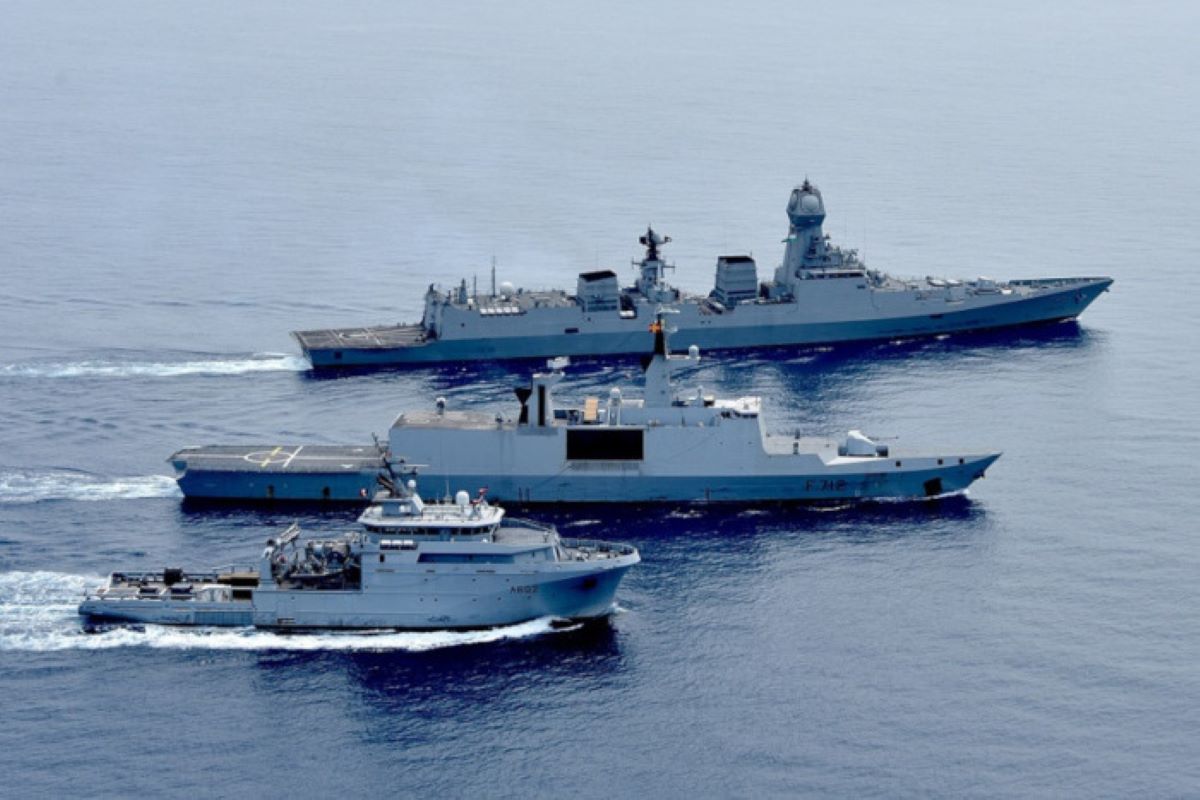The just-concluded 20th edition of the bilateral Naval exercise ‘Varuna-2022’ between India and France, aimed at undertaking joint operations in the maritime theatre and strengthening the strategic partnership between the two countries, has been an unqualified success.
The expanded scope of the exercise this year covered a broad spectrum of maritime operations, showcasing a high level of interoperability. It reflected the high level of synergy and mutual understanding between the Indian and French navies. It also highlighted what outgoing Indian foreign secretary Harsh Vardhan Shringla at a Gateway House dialogue termed the “infinite possibilities” of the India-France partnership, galvanised by geopolitics, at the heart of which lies the convergence of interests ~ economic, diplomatic and strategic ~ between the two nations in the Indo-Pacific.
Advertisement
What comes next is vital for the longevity and effectiveness of what is perhaps among the top-three of India’s strategic relationships. By working together in the Indo-Pacific, the two countries have presented a model to the world of what a rules-based, free, and inclusive region could look like. Also, the work done and results achieved by New Delhi and Paris in digital cooperation and energy transitions, as Mr Shringla underlined, have laid a sound basis for strengthening the bilateral relationship.
India and France have common interests bilaterally and multilaterally, and these are increasingly converging. The consensus among experts is that India must now step up its commitments to trade, technology and defence, areas where France has expertise and can make a significant contribution as the Rafale fighter-jet deal has shown.
As India’s traditional allies like Russia become more vulnerable and, post-Ukraine, the target of Western ire, strengthening Indo-French ties is a way for New Delhi to keep its engagement with Europe on a sound footing. It would also help mitigate any blowback from the West against Russia and its allies including countries such as India which have taken a nuanced and neutral stand on the Ukraine crisis. France has already indicated the priority it accords to the Indo-Pacific. It hosted the first-ever ministerial forum on the Indo-Pacific in Paris in February this year.
India was not only invited to the meeting but foreign minister S Jaishankar was given a platform to critique regional rival China’s propensity to make claims on “the global commons”. This was music to French ears as France has the largest presence in the IndoPacific among the European powers. France’s dozen overseas territories in the region serve as its ‘static aircraft carriers’ and it has almost a double-digit percentage share of the Exclusive Economic Zone (EEZ), making the Indo-Pacific vital for French power projection.
Aggressive Chinese activities in the Indo-Pacific are a huge concern for France. It is a concern shared by India given the danger to the freedom of navigation in the region that Beijing’s hegemonic ambitions pose. An alignment of strategic interests between India and France ~ both democratic, open societies with distinct but complementary civilisational legacies ~ against the backdrop of increasingly unreliable American leadership on global issues makes taking the bilateral relationship to the next level a no-brainer.
